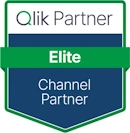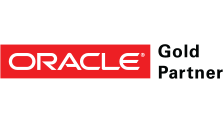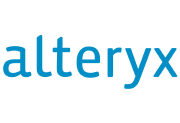Smarter.SEO… powered by Qlik
Smarter.SEO is one of Differentia Consulting’s family of Smarter.BI Solutions that provides those responsible for digital transformation and agentic commerce with quick and simple access to a powerful range of information about your businesses most vital assets to discover converse and transact Agentically.
Is MetaData Management necessary for SEO?
Delivering a consistent and distinct brand image requires agile tools and technology to aid the collaborative process. Smarter.SEO facilitates the proliferation of your brand identity via metadata and empowers Marketing and Advertising companies to manage your digital knowledge graph on a single platform in the cloud. This means that your SEO team can be assured that their content is properly understood by machines and humans alike without dis-ambiguity.
What role does Google play in Smarter.SEO?
External agencies, vendors and partners are all vying to take a share of what has become a >$trillion dollar industry. Google, the leader in internet search and paid for online advertisement for many years, helps publishers to list their products, services and solutions using what are called Rich Text Snippets. Artifacts that are a consistent means to display information relevant to search.
Google search, Google’s rich snippets, Google’s E-E-A-T are all underpinned by Schema.org metadata, which Google helped to pioneer with Bing and Yahoo, and then Yandex, in 2011, to help with the discovery and validation of content for humans and machines. Crawlers index content using schema metadata against the Schema.org context.
Nearly all search is based on the presence of schema, and since AI engines crawled the internet for LLM based learning the need for metadata has been questioned by many an SEO expert for ranking. What they are seeing is that metadata is now more important, not less to provide context, augmenting content, to help avoid hallucinations by these engines, to enable listing.
Many AI tools rely on fan-based crawling: making multiple search requests and aggregating results without deterministic principles. To avoid complete hallucination, they may ground responses in search results, but this approach is fundamentally flawed. RAG-componentised search elements are often semantically unrelated, lacking the contextual relationships necessary for accurate synthesis. The results are consequently unreliable and inconsistent.
What role does Qlik play in Smarter.SEO?
Smarter.SEO pulls information relating to all metadata artefacts, providing management with quick and simple access to a powerful range of data about your domain’s digital knowledge graph.
When you need to control your digital narrative both on-page (SEO) and at the metadata level (for AI discovery), it is vital to have insight into which artefacts are being deployed and their accuracy. Smarter.SEO provides complete information on the performance of your company’s metadata assets and content, enabling you to audit and control them.
Using Qlik as a visualisation tool for VISEON.IO—our SEO control and audit platform—we pull data from our proprietary APIs (FUSEON) to create live analytics, validating both completeness and accuracy across the domains you own. Qlik plays a more extensive role in agentic commerce, where customers utilise Qlik data pipeline tools.
The Smarter.SEO VISEON Qlik analytics application provides an audit trail and governance documentation for metadata standards, enabling you to maintain compliance and remain competitive in the increasingly complex marketplace where AI tools each employ different search methods.
The Critical Role of Metadata in AI-Driven Search and RAG Systems
Structured data, such as Schema.org markup, is fundamental to modern semantic search engine optimisation (SEO) and the effective functioning of AI-driven systems, including large language models (LLMs). Despite some SEO professionals questioning the relevance of metadata in the context of LLM-based web crawling, it remains essential for providing precise context, enhancing discoverability, and mitigating AI hallucinations—incorrect or fabricated outputs generated by models lacking sufficient semantic grounding. This is imperative for Agentic Commerce.
Metadata, particularly structured schema, enables search engines like Google to deliver rich snippets, populate knowledge graphs, and support conversational search features. For LLMs, metadata serves as a critical anchor, ensuring responses are rooted in verifiable data. For instance, a webpage with “Article” schema markup, including authorship and publication date, signals expertise and trustworthiness, aligning with Google’s E-E-A-T guidelines.
Many AI systems employ a retrieval technique known as fan-out crawling, where multiple search queries are issued and results are aggregated to inform responses. This approach, common in Retrieval-Augmented Generation (RAG) frameworks, often lacks robust deterministic principles, relying heavily on the quality of results. When these results are unrelated or of low quality—due to SEO spam or outdated content—the aggregated data can lead to incoherent or inaccurate outputs, exacerbating hallucination risks.
Definition and Mechanism
- Fan-out Crawling: This technique involves issuing multiple search queries simultaneously to gather a wide range of results. The results are then aggregated to inform the AI’s responses. This method is common in Retrieval-Augmented Generation (RAG) frameworks, where the goal is to enhance the model’s output with relevant external information.
Quality of Results
- The effectiveness of fan-out crawling heavily depends on the quality of the retrieved results. If the results are irrelevant, low-quality, or outdated, they can lead to incoherent or inaccurate outputs. This is a significant concern, as it can increase the risk of hallucinations—instances where the AI generates information that is not grounded in reality.
Deterministic Principles
- Lack of robust deterministic principles is the underlying issue. Fan-out crawling can be less predictable than other methods, as the aggregation of results from various queries may not follow a consistent logic or framework, making it challenging to ensure reliability in the outputs.
Conclusion
Structured metadata addresses these challenges and risks by providing clear, machine-readable context that improves semantic retrieval relevance. For example, a webpage marked with “LocalBusiness” schema, specifying location and services, is more likely to be accurately matched to a relevant query, reducing the inclusion of irrelevant sources in RAG outputs. As AI-driven semantic search evolves, metadata-driven indexing and semantic context-aware retrieval will be critical for ensuring precision and reliability in both SEO and AI applications. With Smarter.SEO powered by Qlik, you can be assured that the best digital version of your organisation is represented the way you want.
Start your SEO journey with Smarter.SEO
To understand how Smarter.SEO powered by the Qlik Data Analytics Platform can help your business
be ready for agentic discovery as part of an agentic commerce solution get in touch today.
Call us on +44 1494 622 600 or email [email protected]




